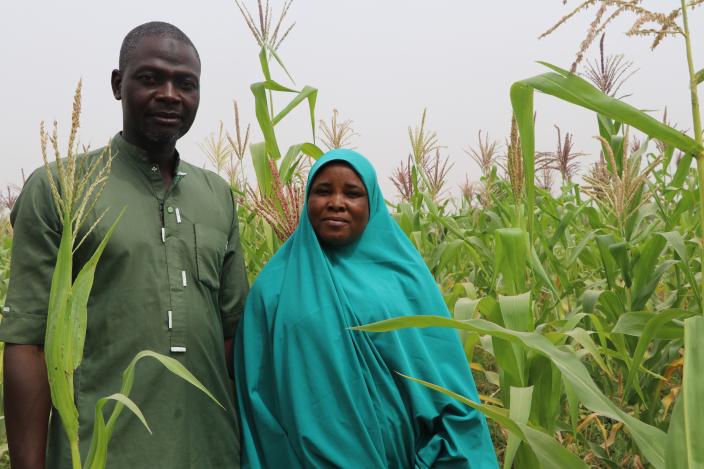“By the time I harvest my crops, I expect to make really good money from the yield. I have never experienced fruitful crop production during the dry season like I did this year,” said 42-year-old Babaginda, a farmer from Badara community, Dankungibar ward in Alkeleri local government area of Bauchi state.
The father of nine children could not contain his excitement as he pointed at his field full of lush green maize, sugarcane, onion, potato, and other vegetables ready to be harvested.
Through funding support from Global Affairs Canada, Oxfam has been working in six local government areas of Bauchi to improve the livelihood and nutrition of 10,000 (60% women) rural farmer households in Bauchi State through increased farm productivity, enhanced market access, better nutrition and improved/enhanced enabling environment for agricultural business development.
“I have always known that it’s possible to farm throughout the year but I could not scale through the huddle of the logistics involved – water source, water pump machine, and the fueling. I could not believe it when Oxfam drilled a borehole in our farm, selected me as one of the champion farmers in my community, trained me, and gave me a water pumping machine,” said Babaginda.
The northern part of Nigeria has a tropical dry climate with low rainfall that last only 3-4 months. In spite of this, farmers in these parts of the country contribute largely to the national food production though the dwindling rainfalls remain a challenge.
“High demand for food by my people encourages me to go back to farm after wet season harvest. I am very happy that Oxfam is helping me to actualize my desire to ensure that my family and community at large do not lack food. Just look at my farm? See how healthy the crops are!” Babaginda said as he worked alongside his wife, ‘Sai’datu to create a path for the water being piped into his farmland to irrigate the crops.
Developing national agricultural investment plans that are gender-sensitive and climate-proof, which seek primarily to support small-scale farmers in non-cash crop sectors is a dire need if we must produce food all year round in Nigeria.
